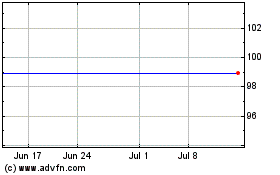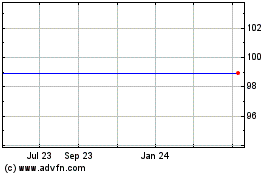Lawmakers Voice Concerns Over AT&T Deal for Time Warner -- 3rd Update
December 07 2016 - 3:15PM
Dow Jones News
By John D. McKinnon
U.S. senators on Wednesday raised new questions about AT&T
Inc.'s proposed $85 billion acquisition of Time Warner Inc.,
suggesting the deal could face more pressure at a time of growing
concentration in many businesses and an era of surging
populism.
Lawmakers on the right and left raised concerns, some even
suggesting the deal might simply be too big and complicated for the
government to police.
"Shouldn't we be concerned" that the conditions necessary to
approve the deal "might not be followed?" Sen. Mike Lee (R., Utah),
who chairs the Senate antitrust subcommittee, asked at one point at
a hearing on the proposed merger.
Mr. Lee also worried that the government wouldn't have the legal
ability to regulate large parts of the combined company because of
antiquated laws.
Others suggested consumers could suffer new harms from the deal
at a time when voters are showing their displeasure with big
business as well as big government.
The November election was an "outrage moment" for people who are
"sick of getting pushed around," said Sen. Amy Klobuchar (D.,
Minn.), the top Democrat on the antitrust subcommittee, following
the hearing. "We need to respond to that."
She suggested holding another hearing on the broader media
environment, including other dominant players such as Alphabet
Inc.'s Google unit and Facebook Inc.
The chief executives of AT&T and Time Warner, however,
pushed back hard, saying the combination of a top content creator
with a leading media distribution company would foster innovation
and competition, with direct benefits to consumers.
"They'll get more choices and lower-priced options," AT&T
CEO Randall Stephenson told the senators. "What this merger is not
about is consolidation."
The deal would combine AT&T, which has millions of pay-TV
subscribers and wireless customers, with one of the nation's most
prized media content companies. Time Warner includes HBO as well as
the Warner Bros. studios, plus networks including CNN and TNT.
The AT&T-Time Warner deal is unusual, however, because
President-elect Donald Trump criticized it on the campaign trail,
and promised to block it.
Sen. Richard Blumenthal (D., Conn.) at Wednesday's hearing
called it "abhorrent" that Mr. Trump would do so apparently because
he dislikes the news coverage of CNN.
Sen. Charles Grassley (R., Iowa) raised questions about the
merged company's ability to employ "'bullying' tactics to dictate
rates and terms to other networks." Mr. Grassley cited "concern
that this acquisition will concentrate too much power into one
conglomerate," as well as "concern about the merger's implications
for a free and diverse press."
Still, lawmakers generally stopped short of predicting the deal
would go down, and AT&T and Time Warner officials were ready
with answers.
It is the Justice Department that will ultimately decide whether
to approve the deal, and senators will have no direct influence on
that decision, though they are well positioned to publicly raise
concerns.
For all the broader political landscape of rising populism, the
deal's success could turn on a tricky call by enforcers on whether
it is anticompetitive -- even though it is not a merger of two
competitors, but rather a "vertical" merger of a company that
creates content with one that distributes it.
The merger "eliminates no competitor," Mr. Stephenson said
Wednesday.
Time Warner CEO Jeff Bewkes said the deal would allow the
company to continue innovating in content as well as in consumer
experiences, for example by adding more interactive features to
video products.
AT&T and Time Warner will have to apply to the Justice
Department for an antitrust review, a process they say has already
begun. Traditionally, telecom mergers also get Federal
Communications Commission review because the agency must approve a
transfer for airwave licenses. Time Warner's license holdings means
the FCC should be involved, but the companies may be able to find a
way to transfer the licenses to avoid an FCC review.
Write to John D. McKinnon at john.mckinnon@wsj.com
(END) Dow Jones Newswires
December 07, 2016 15:00 ET (20:00 GMT)
Copyright (c) 2016 Dow Jones & Company, Inc.
Time Warner (NYSE:TWX)
Historical Stock Chart
From Mar 2024 to Apr 2024

Time Warner (NYSE:TWX)
Historical Stock Chart
From Apr 2023 to Apr 2024
